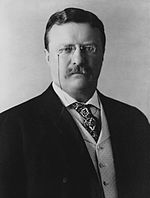Luke Edward Wright
Luke Edward Wright | |
|---|---|
 | |
| 43rd United States Secretary of War | |
| In office July 1, 1908 – March 11, 1909 | |
| President | Theodore Roosevelt |
| Preceded by | William Howard Taft |
| Succeeded by | Jacob M. Dickinson |
| United States Ambassador to Japan | |
| In office May 26, 1906 – August 13, 1907 | |
| President | Theodore Roosevelt |
| Preceded by | Lloyd Carpenter Griscom, Envoy to Japan |
| Succeeded by | Thomas J. O'Brien |
| Governor-General of the Philippines | |
| In office February 1, 1904 – April 1, 1906 | |
| Preceded by | William Howard Taft |
| Succeeded by | Henry Clay Ide |
| Personal details | |
| Born | August 29, 1846 Giles County, Tennessee, U.S. |
| Died | November 17, 1922 (aged 76) Memphis, Tennessee, U.S. |
| Political party | Democrat[1] Republican |
| Spouse | Katherine Semmes Wright |
| Alma mater | University of Mississippi |
| Profession | Public Servant |
| Military service | |
| Allegiance | |
| Branch/service | |
| Rank | |
| Battles/wars | American Civil War |
Luke Edward Wright (August 29, 1846 – November 17, 1922) was a United States political figure. He served as Governor-General of the Philippines between 1904 and 1906 and also as Secretary of War from 1908 to 1909.
Biography
Luke Edward Wright was born in Giles County, Tennessee, and moved with his family to Memphis in 1850. He attended the public schools, and enlisted at fifteen in the Confederate States Army with Company G of the 154th Senior Tennessee Infantry Regiment during the American Civil War. In 1863, Wright was cited for bravery under fire in the Battle of Murfreesboro and was promoted to second lieutenant. After the Civil War, Wright attended the University of Mississippi from 1867 to 1868, but he did not graduate. He married Katherine Semmes in 1868.
After studying law in his father's office, Wright was admitted to the bar and entered into practice in Memphis. For eight years, he served as Tennessee Attorney General, and he was instrumental in establishing a relief committee during an epidemic of yellow fever in 1878. In 1900, Wright was a member of the second Philippine Commission and was appointed vice-governor of the Philippines in 1901. Wright became full Governor-General of the Philippines in 1904 and continued in that office until 1906. From 1906 to 1907, Wright served as the first full United States Ambassador to Japan.
From July 1, 1908 to March 1, 1909, Wright served as United States Secretary of War under President Theodore Roosevelt. He stressed actions to eliminate unfit officers and sought to take advantage of aviation technology. He served less than a year before resigning. He returned to private life and died in Memphis in 1922.
Legacy
The "Pool of Pines", better known as Wright Park in Baguio City, Philippines was named after Governor Luke E. Wright, the architect of this long, shallow reflecting pool. A street in Dumaguete City in Negros Oriental province is named after him.
References
- Bell, William Gardner. "Luke Edward Wright". Secretaries of War and Secretaries of the Army.
{{cite book}}: External link in|chapterurl=|chapterurl=ignored (|chapter-url=suggested) (help)
- ^ "Mr. Wilson's Cabinet: Will Be Sagacious Men, but Not Political Experts". November 7, 1912. Retrieved 2013-02-06.
External links
- 1846 births
- 1922 deaths
- People from Giles County, Tennessee
- Tennessee Attorneys General
- United States Secretaries of War
- Governors-General of the Philippine Islands
- American expatriates in the Philippines
- Ambassadors of the United States to Japan
- Confederate States Army officers
- People of Tennessee in the American Civil War
- Theodore Roosevelt administration cabinet members
- 20th-century American politicians
- American lawyers admitted to the practice of law by reading law



